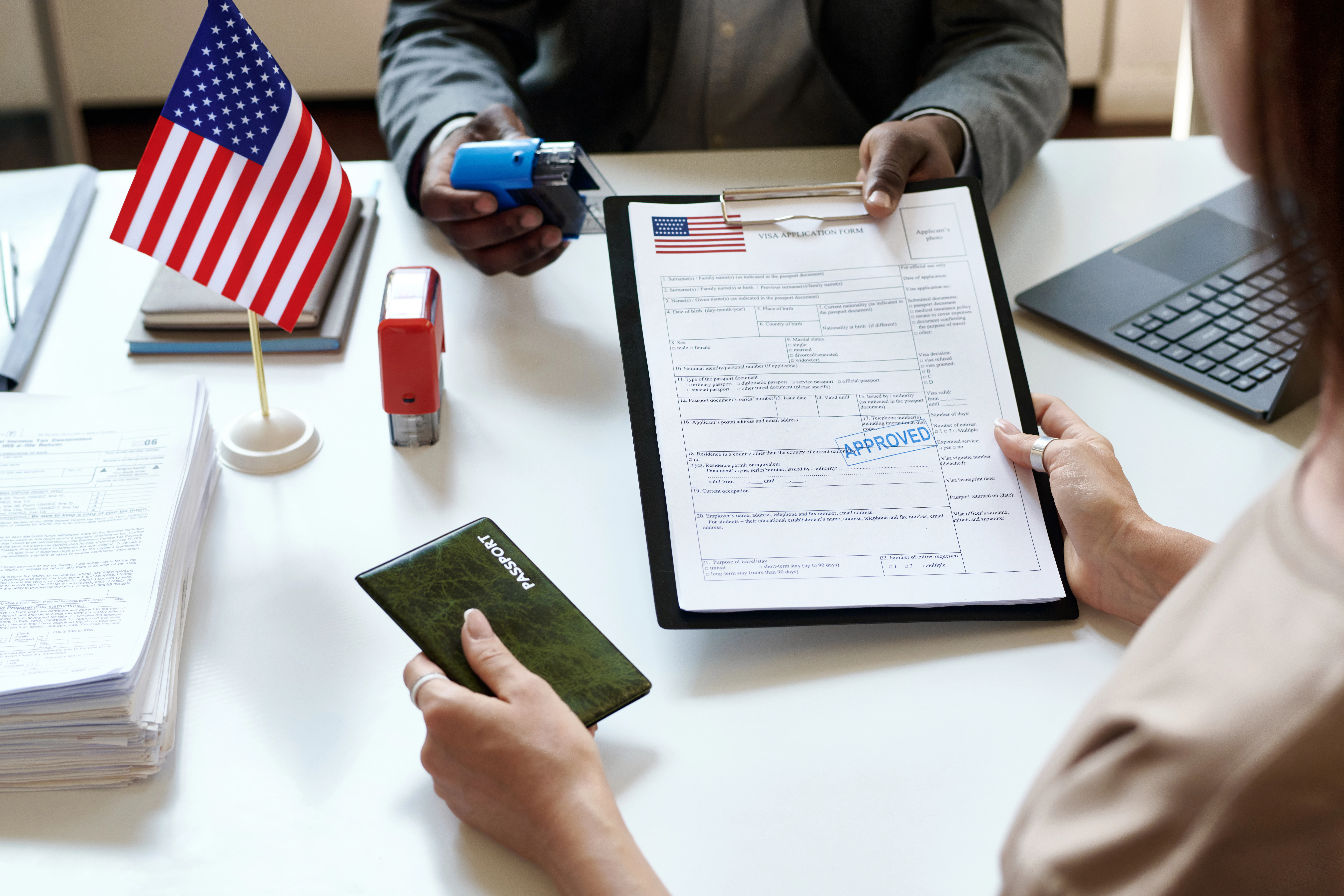
One of the most common ways to work in the United States is for a prospective employer to file a petition with US Citizenship and Immigration Services (USCIS) for a U.S. work visa.
Once this work visa petition is approved, there are a few key action items that one must complete before starting work in the U.S. Make sure to follow these five key steps to ensure a smooth immigration process once your visa is approved.
1) Check passport validity:
In general, one’s passport must be valid for at least six months beyond the expiration of the period of admission to the U.S. , as noted on their USCIS approval notice.
When entering the U.S., the U.S. Customs and Border Protection (CBP) officer will typically admit the individual until the validity of their approval notice or passport expiration date, whichever date is earlier.
Therefore, it is critical that one always check the validity of their passport and apply for a renewal, as needed, well in advance.
Over 100,000 recent newcomers trust Nova Credit
Subscribe to our newsletter for the latest tips and information on setting up life in the U.S.
2) Apply for a visa stamp:
Other than Canadian citizens, one must typically apply for a visa sticker stamp with a U.S. Embassy or Consulate outside of the U.S. The visa stamp is necessary to enter the U.S.., but it neither governs the applicant’s period of stay nor their work authorization in the U.S.
The visa stamping process requires each applicant to complete an online visa application form, called a DS-160, pay the visa fee, and schedule the appointment with their local Consulate or Embassy.
Tip #1: Due to backlogs from the global pandemic, delays in getting appointments have become increasingly common. Although it is possible to request expedited service, Consulates and Embassies around the world have indicated that there must be evidence to show a compelling and time-sensitive need for urgent travel.
Tip #2: While many Consulates and Embassies are open to having non-citizens apply in their country’s offices, this is not guaranteed. It is important that applicants check with that specific office before making travel arrangements for a visa appointment in another country.
Tip #3: The U.S. Consulates or Embassies may require a visa applicant to undergo additional security screening based on a variety of reasons such as applicant nationality, degrees or jobs in high-tech fields, and instances when a name resembles an individual listed in a U.S. government security database. If a security clearance is required, the visa cannot be issued until it is cleared, which ultimately impacts one’s ability to enter the U.S.
3) Obtain Form I-94 Arrival Record:
Upon entry into the U.S., CBP no longer stamps the passport to show the date and class of admission. Rather, one’s immigration status and duration of stay is automated online in CBP’s I-94 arrival record system.
The I-94 expiration date governs one’s period of lawful status in the U.S., so it is imperative that one always check their I-94 online after they enter and send a copy to their employer to ensure that the information is correct.
With the exception of limited trips to Canada and Mexico, one’s I-94 is typically updated each time upon entry into the U.S.
Find a printout of your travel history on the I-94 here: https://i94.cbp.dhs.gov/I94/#/home.
4) Apply for a Social Security Number:
A Social Security Number (SSN) is required to work in the U.S., and serves as an important unique identifier for several key other processes such as paying taxes and accessing financial services.
To apply for an SSN, you can submit a request online. After your online request is submitted, you must bring in supporting documentation to your local Social Security office within 45 days.
Although the Social Security Administration recommends individuals to wait 10 days after arriving in the U.S. to apply for a SSN, it may be prudent to contact the office in advance to get more detail on the application process.
For additional guidance on this process, read:
You should receive your SSN card within two weeks of submitting your documentation, although delays are common.
5) Research essential U.S. products:
There are countless other logistics to consider in order to smoothly transition into your life in the U.S. While you cannot apply for many products and services until you have a U.S. address, it’s a good idea to get a head start on researching the options available to you.
Tip #1: As you decide how to pick a U.S. phone plan, make sure to consider the cost, coverage, and data speeds of the major carriers.
Tip #2: For finances, you should research how to choose a bank in the U.S. and decide which banking products you will need. While you likely will not have a U.S. credit history, there are options to apply for credit cards as a non-US citizen and to get an auto loan with your foreign credit history.
A great way to start building U.S. credit is to manage a U.S. credit card, many of which you can apply with your foreign credit history.
Tip #3: Similarly, while many apartment rentals will check your credit history, there are also no-credit check rental alternatives available.
Tip #4: Check out Nova Credit’s Immigration Guide for additional resources for accessing essential products and services once you arrive in the U.S. Our Newcomer Marketplace helps you apply for credit cards, phone plans, loans, and more with your foreign credit history once you arrive—no U.S. credit history required.
The takeaway:
Getting a visa approval from USCIS is an existing milestone in your immigration journey, but should be viewed as the first of several steps that one must complete before formally starting work and life in the U.S.
Note that these steps are general guidelines, but do not cover specific nuances of each visa type. Many work visa options are specific to certain employers, worksites, salaries, and/or positions, so any changes to the terms of the employment (such as the salary, responsibilities, worksite or hours), may entail formal notification to USCIS before the changes occur.
Therefore, it is important to continue to keep an open and communicative dialogue with your employer (and attorney) throughout the entire visa process to ensure your work visa status (and ability to remain in the U.S.) is not jeopardized.
More from Nova Credit:
How to use your foreign credit history to get credit in the U.S.
